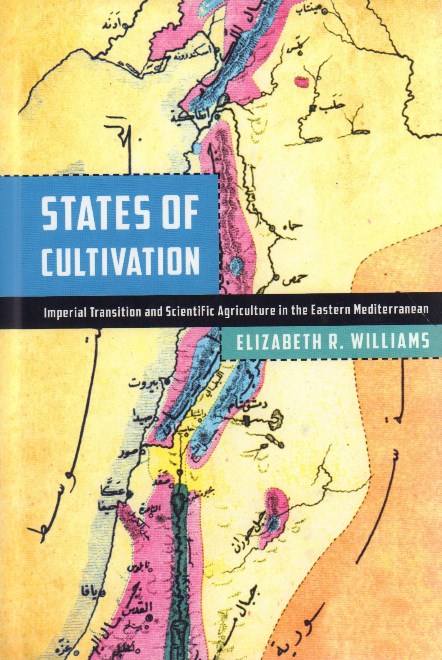States of cultivation : imperial transition and scientific agriculture in the eastern Mediterranean / Elizabeth R. Williams.
Yer Numarası
A.IX/7272
ISBN
9781503634688 (cloth)
9781503635937 (ebook)
9781503635937 (ebook)
Dil Kodu
İngilizce
Yayın Bilgisi
Stanford, California : Stanford University Press, ©2023.
Fiziksel Niteleme
xii, 425 sayfa : resim, harita, tıpkıbasım, tablo ; 24 cm
Genel Not
İndeks s. 407-425.
Bibliyografi, vb. Notu
Bibliyografya s. 379-405.
Bibliyografik notlar s. 283-378.
Bibliyografik notlar s. 283-378.
İçindekiler Notu
Introduction -- Provincial legibility and ecologies of extraction : agrarian networks and the making of late Ottoman rural state space -- “Agriculture from a book” : “scientific” agriculture in the Ottoman eastern Mediterranean -- The trials and tribulations of tractors : from Ottoman provinces to French mandate states -- The politics of agricultural expertise and education : exerting rural influence under the French mandate -- Of mice, Sunn bugs, drought, and taxation : the pests of mandate rural administration and the crisis of the 1930s.
Özet, vb.
“The final decades of the Ottoman Empire and the period of the French mandate in Syria and Lebanon coincided with a critical period of transformation in agricultural technologies and administration. Chemical fertilizers and mechanized equipment inspired model farms while government officials and technocratic elites pursued new land tenure, credit-lending, and tax collection policies to maximize revenue. These policies transformed rural communities and environments and were central to projects of reform and colonial control--as well as to resistance of that control. States of Cultivation examines the processes and effects of agrarian transformation over more than a century as Ottoman, Syrian, Lebanese, and French officials grappled with these new technologies, albeit with different end goals. Elizabeth Williams investigates the increasingly fragmented natures produced by these contrasting priorities and the results of their intersection with regional environmental limits. Not only did post-World War I policies realign the economic space of the mandate states, but they shaped an agricultural legacy that continued to impact Syria and Lebanon post-independence. With this book, Williams offers the first comprehensive account of the shared technocratic ideals that animated these policies and the divergent imperial goals that not only reshaped the region's agrarian institutions, but produced representations of the region with repercussions well beyond the mandate's end” -- Yayıncı.
Konu
Tarım ve devlet__Suriye__Tarih__20. yy.
Tarım ve devlet__Lübnan__Tarih__20. yy.
Tarımsal yenilikler__Suriye__Tarih__20. yy.
Tarımsal yenilikler__Lübnan__Tarih__20. yy.
Emperyalizm ve bilim__Suriye__Tarih__20. yy.
Emperyalizm ve bilim__Lübnan__Tarih__20. yy.
Suriye__Tarih__Fransız işgali, 1918-1946.
Lübnan__Tarih__Fransız işgali, 1918-1946.
Tarım ve devlet__Lübnan__Tarih__20. yy.
Tarımsal yenilikler__Suriye__Tarih__20. yy.
Tarımsal yenilikler__Lübnan__Tarih__20. yy.
Emperyalizm ve bilim__Suriye__Tarih__20. yy.
Emperyalizm ve bilim__Lübnan__Tarih__20. yy.
Suriye__Tarih__Fransız işgali, 1918-1946.
Lübnan__Tarih__Fransız işgali, 1918-1946.

 English
English

